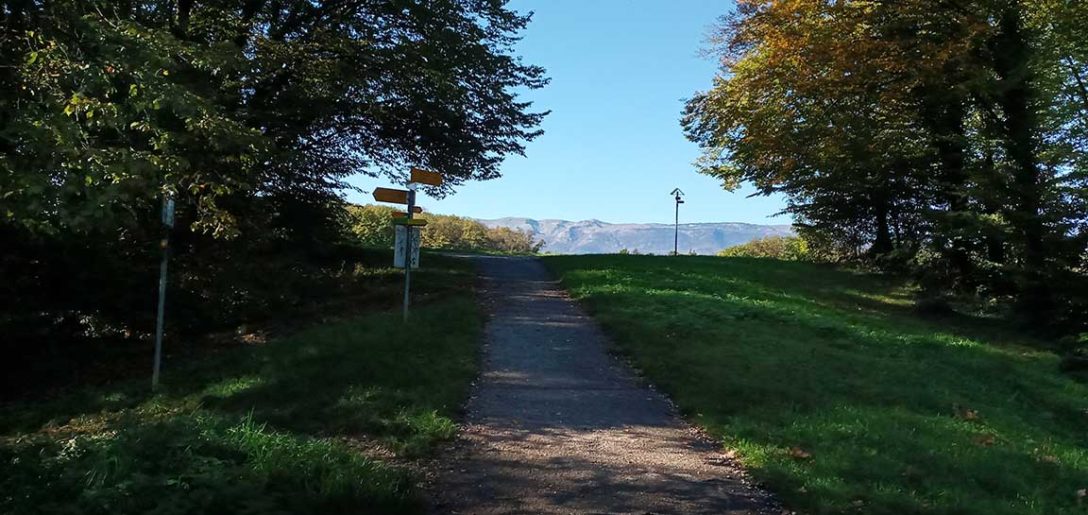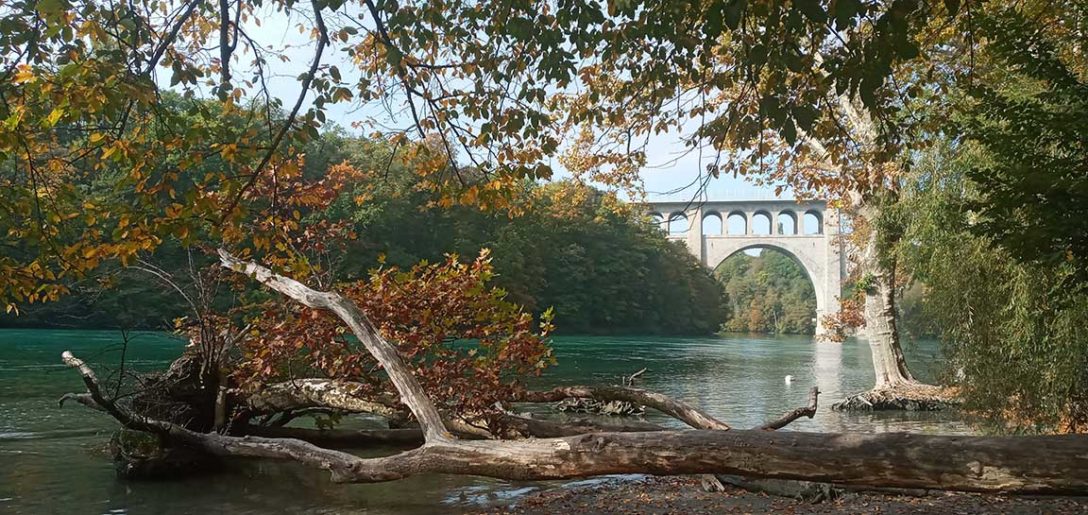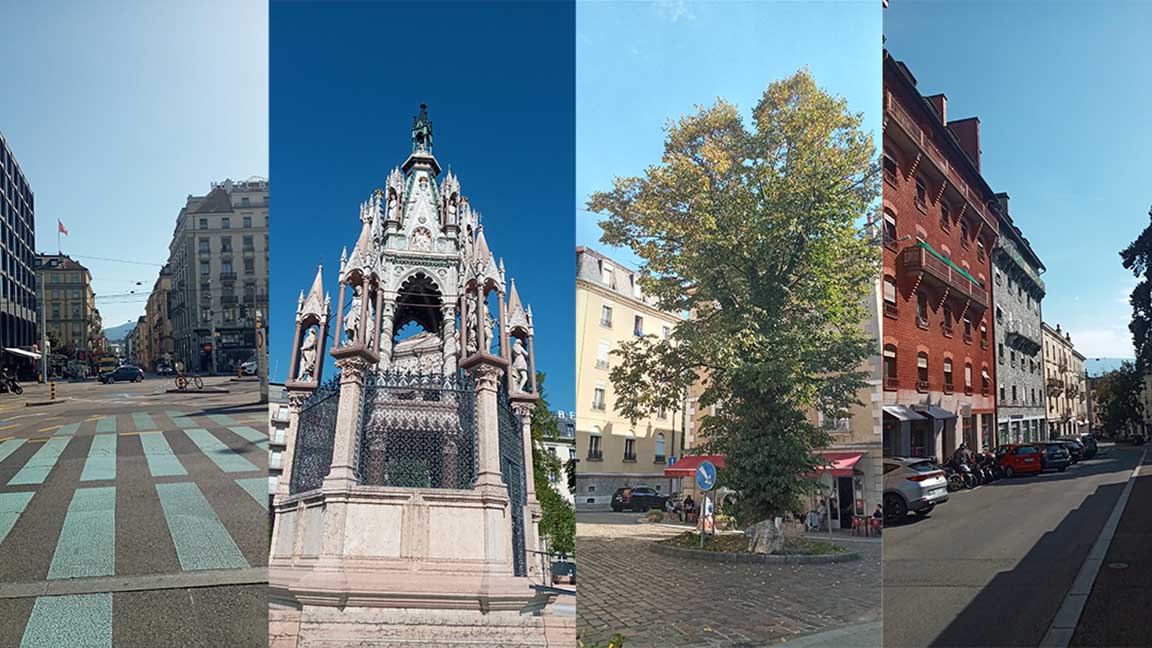21st October, 2022
Geneva, Switzerland
I LOOKED OUT of a small slice of window above our bunks. It was sunny and clean outside. Over the rumble of the boiler, I could hear Chiara, my best friend, sighing loudly in the kitchen of her apartment as she tried to work the milk foamer. When we lived together nine years ago, I could always hear her waiting for me to wake up, just like this, shuffling around the house with a story brewing in her head, so she could throw it at me when I emerged from my room.
I’d just arrived here after ten days in Brussels, where I lived from 2012 to 2017. “Holiday in Europe,” my parents in New Delhi would tell their neighbours about my forthcoming travels, and the aunties would beam at me in the elevator like I was winning the Nobel Prize.
“It’s not a holiday! I’m going to be working!” I would shout.
“Besides, I’m going back where I used to live,” I would add, as if they cared at all.
Outside there was an apple tree in the middle of the garden, and two men at work on a pipe, speaking in Sicilian dialect. The boiler continued to roar gently, sounding like a nearby ocean.
“We’re like sailors at sea,” I texted our friend Jordan.
Unwelcoming immigration laws, and my inability to find work, or adequate agency, in a continent that had declined to be my home, had eventually made me leave Brussels. When I returned I rode the metro up and down without paying; I sat under the same trees, occupied the same benches in squares, visited the same Moroccan tea shops, and bought the same borek from the bakery that had fed me during cold, lonely days. I walked to a laundrette in Molenbeek, my old neighbourhood, hoping to run into Rashida, a stern older woman who lived nearby, and who’d hated the way I washed my clothes. Sure enough, after some lurking, Rashida appeared from around a corner.
“Where have you been for six months?” she asked crossly, as I tried to give her a hug. “It’s been five years!” I said and she waved me away.
“No, it hasn’t. Learn how to tell time.”
As I walked, I fancied I could see two of myself everywhere: a past self, walking a rusty bike to work, sitting desolately near the canal and eating a sandwich I hated. And then, present me (“mostly the same person, just with more purchasing power and less internalised racism,” as I texted my sister). Being there again felt dramatic, like the resurrection of something that had been forced into memory. An act of reclamation, almost.
But Switzerland for me had existed only in Bollywood films where famous actors danced in alpine meadows, or in catchphrases about watches and chocolate; a place I had never imagined to be real. “Kaanch ki duniya lagti hai,” my grandfather used to say of Switzerland, as seen on television. “It feels like a world inside a crystal ball.” I told Chiara this when I got up and found her upstairs, making us breakfast, and she became nervous.
“I’m afraid you’re going to judge me for being here,” she said, already reading my mind.
She got ready to leave, putting on shoes. She had laid out bowls of millet porridge and apples and honey and cheese for me to eat. “You slept so much!” she said as I approached the table, and I held back tears, suddenly overwhelmed at sharing space with my best friend after years apart.
“Meet me in two hours at uni!” she yelled from the door, and sprinted to the bus stop.

I took a slice of bread with honey and went outside to say hello to the Sicilians. We talked in haphazard French. I told one of them that I once visited their beautiful, sea-clad country and that I’d never known that there was a place that beautiful, that sentimental, where the sunsets looked like epics must be written about them. He was pleased. “Leave this place and go to Sicily,” he whispered, though there was no one else around. My best friend, she is Italian, I told them, also in whispers, as if relaying gossip. “And she has decided to live here! Can you imagine.” The Sicilians and I made coordinated sad faces and looked down at the ground.
I took Chiara’s bike out and rode it around the clean, quiet neighbourhood. I was perplexed by how mechanical everything was, how streamlined the roads and the glances and the communication of bodies were in this country. There were no signs of life that I could recognize. Where I am from, both life and death lurk in every corner. Each minute of every day can bring celebration or catastrophe.
I bought a red bean-bun from a wonderful woman in a small Asian store, becoming annoyed that she had disrupted my theatre of disgruntlement. Because I was unable to return her loveliness, I bought another bun stuffed with meat, which I ate with one hand as I biked to Chiara’s university.
I found her waiting for me outside, texting. Someone asked me if I was a “visiting scholar.” “Visiting, but not scholar,” I said, feeling cool and pretentious, and both Chiara and I laughed. “I’m so glad you’re here,” she said. I was thrilled. I had been waiting for a declaration like that all day.
As we made our way to the river to swim, I couldn’t help complaining about Geneva again. Really, I wanted to talk about the hard time I had during Covid in India, the years we didn’t see one another, my sadness at how our contexts have widened as they have. But I disguised all that behind a rant about Swiss money and European diplomacy.
“Even the buildings look privately educated, dude,” I said vengefully. “No one’s looking at me in the face!” She listened and nodded, but I could sense her getting tired.

Near the water we met a man, an expressionless acquaintance of Chiara’s who told us he was enjoying the “long summer in Europe.” I looked away, beginning to feel angry again, wanting to confront him about the deadly heatwaves, the devastating floods, about South Asia reeling from the climate emergency.
“White people are impossible to love!” I shouted instead at Chiara a moment later, storming into the water to swim.
As I swam, my temper faded. I realised we’d come here because I love cold, open water, I like millet and honey in the mornings, and everything we’d been doing all day was because they’re the things I like to do. “I’m sorry!” I shouted over the water. I was freezing. “It’s just all so weird! It’s weird to be here! It’s weird to be outside Delhi! It’s weird to be back!”
Chiara shouted back an apology too, and we began to laugh, separated by the water, and the distance of the last three years, the devastation of the pandemic, the dissonance of our lives momentarily faded away. We cannot kid ourselves anymore, I thought. We are older, whether we like it or not—our lives are determined by who we are in the world and where we come from.
We went to the supermarket, gasping at price tags. “Screw you, Switzerland!” I said, to amuse Chiara, mutinously smuggling a tub of yoghurt into the cat food aisle. She sent pictures to our friends and a barrage of responses followed. “Up to no good, I see.” “Reunited!” “God save Geneva from you two. Insufferable lot.”
We bought two bars of chocolate. Chiara shouted at people on the phone about a music workshop she was planning. “Everyone’s always depending on me, dude!” she said exasperatedly. And it is true, everyone does do that. I do, too. Chiara is always in charge of all our fun.
I looked at the same buildings I had hissed at earlier with a certain forgiveness. “I like it here,” I said quietly, and she slapped my shoulder. “You’re so dumb. I hate you,” she said, as I ate the last of my chocolate. She’d already finished hers.
When we got home, we went straight to bed, and pretended to read because we were both exhausted. But we talked over our books—I was even holding mine upside down.
“It’s like we’re at sea,” she said, as she put her book down. “Can you hear the boiler? It sounds like water. I’m surprised you haven’t made some kind of big deal about that yet.”
Thank you for reading POPULA! Add your email here to receive our newsletter!






